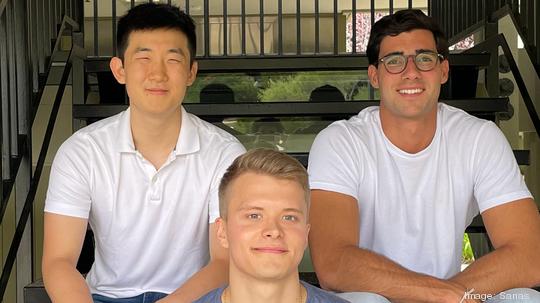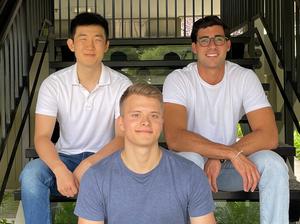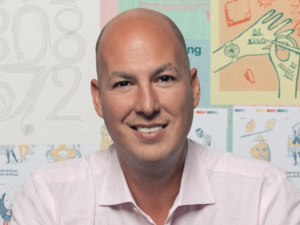
When I first started talking to Vikram Rawat over Zoom, it was pretty clear he was from India.
Rawat, a freelance worker living in Pune, India, spoke English with a slight — but distinct — Indian accent.
But then Maxim Serebryakov, CEO of Sanas.ai Inc., activated his company's software. All of a sudden, Rawat sounded like someone from the middle of the United States. He was speaking with a standard — if somewhat robotic sounding — American accent. Indeed, he sounded like Mikey Day, the "Saturday Night Live" star and host of the Netflix series "Is It Cake?"
At first I thought Serebryakov might have simply substituted Rawat's live voice with a pre-recorded message, but then Serebryakov encouraged me to ask Rawat some questions. So, I asked him to describe his favorite food, and what his favorite subject in school had been.
"I'd like to describe to you a butter chicken recipe ... It's really creamy, and it has very kind of sweet-and-spice mixture that makes it my favorite," Rawat answered in his Mikey Day-like voice. He continued, "My favorite subject was, I would say, theater, drama. I was not very good at academics, so I chose theater."
As my conversation with Rawat aptly demonstrated, Sanas' software "translates" accented speech in real time. It can help someone from Australia be intelligible to an English-speaking Filipino. Currently, the Palo Alto company's software just translates among different accented versions of English.
Even so, Serebryakov and his team and investors at Sanas see a big market for its technology, particularly for use in customer service centers or in helping corporate employees more easily communicate with colleagues located in other countries.
Founded in 2020, Sanas has been on something of a roll lately. After it raised a $5 million seed round in August, it achieved a series of milestones more quickly than expected, Serebryakov told the Business Journal. Among them: It was able to demonstrate that its service could translate accented speech in real time and it deployed its software to 250 call center agents in India for testing.
Sanas also garnered a lot of attention, because it was tackling a problem that other companies working on speech-related technologies hadn't really focused on, Serebryakov said.
Sanas scored $32 million
Thanks to those business and marketing successes, the startup was able to score a new funding round, announcing last week it's raised $32 million in a Series A deal. That's a relatively large early-stage round for a company in the speech technology business, Serebryakov said.
"There aren't a lot of very hot speech companies," Serebryakov said. The attention Sanas was able to generate "helped us fundraise very, very quickly."
For now, Sanas plans to focus on translating the many different Indian accents, said Marty Massih Sarim, the company's president. The startup eventually plans to turn its focus to Filipino and South and Central American accents, he said. The company is also working on making its standard American accent sound more natural and less robotic, Massih Sarim said.
Sanas isn't yet generating any revenue. But the company has deals in the works with some big customers it expects will be signed in coming months, Massih Sarim said. Among its prospective clients: Assurant Inc., the New York City-based insurance provider, and Alorica Inc., the Irvine-based provider of customer support services. Sanas' goal is to have 10,000 customer service representatives using its accent translation software by the end of the year, Massih Sarim said.
Prior to joining Sanas, Massih Sarim had been an angel investor who took an early stake in the company. He also had previously worked for companies that offer outsourced customer service operations.
He invested in Sanas because he saw its potential to improve communication and increase customer satisfaction in interactions with such call centers. He also thought it could help provide new opportunities for international workers who might otherwise be excluded from jobs because of their accents.
"I've seen firsthand the struggles that agents have with communication," he said. But, he continued, "Sanas touches so much more than the communications space. It's a job creator, as well."
Despite its new funds, Sanas plans to be conservative when it comes to its own hiring, Massih Sarim said. The company has about 40 employees, up from 17 in September.
The new capital "doesn't give us in any way a green light to start spending erratically," he said.
Sanas' existing team has plenty of motivation to develop its service, thanks to their own experiences. About 85% of the company's employees are immigrants, Serebryakov said.
"Everybody at Sanas has their own Sanas story, associated with some sort of accent and why they're building the product," he said.








